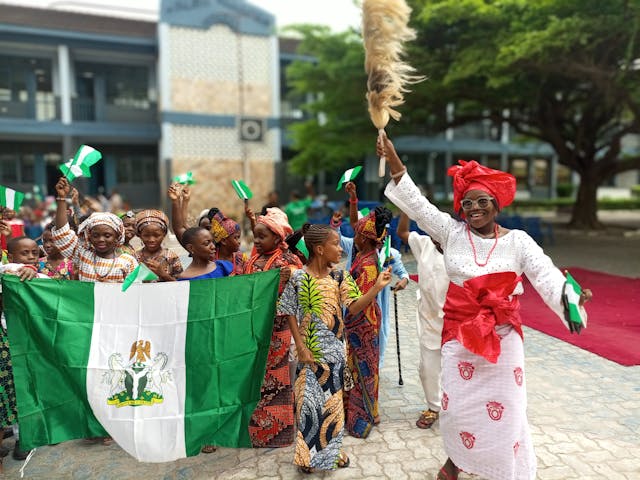Nigeria – A Society of Extremes
Nigeria is living proof that in the absence of enforceable institutions and the rule of law, extreme social behaviour becomes permissible and commonplace especially impunity bought through the rule of money.
Malcolm Freeman Godfrey is a man on Facebook I have learnt not to ignore. He is a truth teller in the pure sense and never minces words. Two things are remarkable about his posts. One is he persists in his truth-telling in a post-truth era. The other is he describes Nigeria, pointing out the extremes of culture and permissiveness. On close reflection, difficult to live, survive or even flourish in Nigeria without observing extremes. Living in extremes is the underrated cause of problems in Nigerian society.
For society to advance and progress, the balance of power, the Golden Mean (the abhorrence of extremes), fairness, discipline, trustworthiness, honour, and stables preferences are necessary for the rightful allocation and expression of ideas, energies, and stocks available. Introduce an added part of the Human Development Index to measure how unbalanced a society is, Nigeria may win gold without adjustments made.
From an early age, we teach the Nigerian three sets of binding rules in proportions that depend on the preferences of parents and guardians and, later, the personal developments of individuals.
Traditional rules are the important in the lives of most. There is nothing wrong with them. Taboos and rights shape the socialisation of people. The problem is traditional rules apply to only the traditional or primordial sphere; seniority, orders of ascendancy, chieftaincy, virginity, incest, sorcery, marriage. Traditional rules are not universal in application. Each ethnic group or clan has its own peculiar traditional rules. It surprises no one traditional rules are dwindling is stature and enforcement. We frown at the wife, who praises men besides her husband; a Facebook like or love is alright. Men who craved virgins now want experienced girls with skills. Seniority still holds if one has enough clout or wealth.
Civic rules are the best defined and most universal. We rank them as the least important by most Nigerians. Most will deny it, hoha! But who has a concrete grasp of the reasons for civic rules? Why do people stand in queues, obey traffic lights, pay taxes, drive road worthy cars? It is a scandalous claim to say 90-95 per cent cannot offer a proper answer. Just start asking the closest standing and seated next to you and your eyes may pop with disbelief. The Thou Shalls and Thou Shall Nots, the lawful and unlawful, the pleasant and the terrible have been reduced to a continuum of each other. Some plead such does not only happen in Nigeria. Should that concern a concerned Nigerian?
As a rule, we expect Nigeria to run as a democracy. Many of its citizens have legal literacy. Question: what’s the purpose of justice institutions? Before corruption, state nonfeasance, public cost-avoidance, and deliberate civic failures embedded themselves in the legal institution, the country suffered from legal pluralism. Legal pluralism offers a choice between formal and informal laws in the search for redress; courts, customary courts, religious courts, royal courts, market women courts, trades person’s courts, clan courts, and more.
Two quarrelling senators can opt to take their political contentions for binding rulings to the grand patron court. Or an ethnic royal court or a third-party corporate court (if both senators have contractors with say, Shell Oil). The law courts are only opted for when a credible third-party arbiter is unavailable. The institution responsible for enforcing the rule of law is thus the least choice of redress. Without surprise becomes a contrary institution – doing the opposite of its purpose.
Religious rules are the trickiest of rules for many Nigerians. The laws of God are self-regulated by each individual and therefore warned not to judge. Ha ha ha! Between righteousness and obedience on the one hand and hypocrisy and religiosity on the other, self-righteousness and delusion reigns. Not compliance or obedience to divine edicts. The statement is harsh; I agree. Finding any Nigerian living their lives under the Gospel of St Matthew or Suratul-Baqara or Maginizuo is a confirmed impossibility.
Yet, too many of my countrymen and women wrap themselves up in religious text. It helps their imagined escape from their vices and not-too-good identities and those of the spiritual avatars. Not that it changes them. It only provides excuses backed up by vain passages, divine laws are spoken than put into action. Practicing what they preach was never part of the arrangement to “trust and obey.”
Furthermore, fhe inevitable mix of current civic and traditional rules neither resembles those brought by the colonialists nor of our indigenous history, respectively. They may look like monstrous morphs to observers. Further spliced with religious rules, the mix gets more complex, scarier, wilder, and unfit for purpose. As a consequence, our society becomes a place in which codes of governance get taken over by deformations, malignancies, arbitrariness, and lethargies, till they become unrecognisable. Most acts of governance in Nigeria appall the aging and match nothing read in books of learning or experienced overseas.
Thus, money has become the law in Nigeria, the rule of money, only for its unstoppable enforceability and embraced universality. It trumps and unbalances the Constitution of Nigeria. I remember many a southern Nigerian elite support Osama bin Laden in 2001. Not because they had any tolerance or liking for terrorism. Nor because of any dislike for America, they love America. Or because they were Muslims, they were Christians. They supported Bin Laden because he was a billionaire or from a billionaire family. That money is right is the new morality that, by consensus, fuels Nigeria’s rule of money.
Nevertheless, money can buy into any vice on the planet, including financial and violent crimes. Under the rule of money, no notions of it are extreme. Because the power or possession of money cannot be extreme. Rich men back groups like Boko Haram, Bandits, and Militants and their terrorism is self-evident but explained away as a necessity, not terrorism. Politicians are kleptomaniacs decivilising but regarded as deserving. Sex is to the highest bidder or the closest. Friendship is to the one who yields the highest utility. And money has pushed society towards decadence with illegal sources desired over legitimate ones.
Unsurprisingly, the logical outcomes of the trivialised rules we see are extremes that emerge and proliferate unchecked. What is in place to check them? Who benefits and who suffers because of the extremes?
It may now not be clearer why Malcolm is fair in describing Nigerian in extremes with routine persistence. Malcolm like many others activist want Nigeria well-balanced. However, as hard as it may be, the search for tools to balance the society continues.
Grimot Nane




